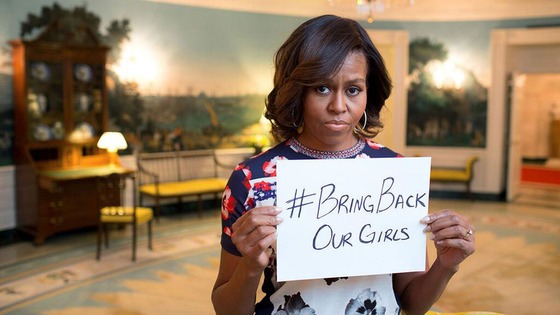Government Grants
Business Grants
Home Owner Programs
Federal Programs
About Us
Trinidad and Tobago Youth Development and Diversion Grant
Overview:
The Bureau of International Narcotics and Law Enforcement Affairs of the U. S. Department of State announces an open competition for organizations to submit applications to carry out a project providing a community-based solution to counter gang recruitment in selected communities of Trinidad and Tobago (TT).
Countering the spread of criminal gangs is an INL Priority goal under mission goal 1, “Enhanced Citizen Security and Rule of Law’, objective 1. 2 ‘Institutions support at-risk communities to address the underlying drivers of crime, gang involvement and violent extremism’, Sub Objective 1. 2. 1 ‘TT expands youth development and diversion programs to disincentivize gang involvement, strengthens juvenile justice systems, and improve relationships between law enforcement and at-risk communities’ Criminal gang activities drive violent crime and homicides in TT.
This undermines public safety, negatively impacting livelihood, consumer confidence, foreign investment, and the ability of every citizen to enjoy peaceful and friendly communities.
Lack of sustainable economic opportunities creates a climate for recruiting vulnerable youth into criminal gangs, leading to a decrease in the productive capacity of the young adult population between the ages of 18-35, especially males.
Youth between the ages of 10 and 18 are more susceptible to societal and cultural ‘push’ factors, and ‘pull’ factors within the gang itself.
Familial factors such as parental drug and alcohol abuse, violence at home, and parental criminality or gang membership are amongst the strongest predictors or delinquency and gang involvement.
Community ‘push’ factors linked to joining gangs include social disorganization, availability of firearms, access to drugs and cultural norms supporting gang behavior.
Youth may be pushed towards gang culture to resist structural violence they experience in their own community.
In addition, the presence of pre-existing gangs correlates strongly with furth
The Bureau of International Narcotics and Law Enforcement Affairs of the U. S. Department of State announces an open competition for organizations to submit applications to carry out a project providing a community-based solution to counter gang recruitment in selected communities of Trinidad and Tobago (TT).
Countering the spread of criminal gangs is an INL Priority goal under mission goal 1, “Enhanced Citizen Security and Rule of Law’, objective 1. 2 ‘Institutions support at-risk communities to address the underlying drivers of crime, gang involvement and violent extremism’, Sub Objective 1. 2. 1 ‘TT expands youth development and diversion programs to disincentivize gang involvement, strengthens juvenile justice systems, and improve relationships between law enforcement and at-risk communities’ Criminal gang activities drive violent crime and homicides in TT.
This undermines public safety, negatively impacting livelihood, consumer confidence, foreign investment, and the ability of every citizen to enjoy peaceful and friendly communities.
Lack of sustainable economic opportunities creates a climate for recruiting vulnerable youth into criminal gangs, leading to a decrease in the productive capacity of the young adult population between the ages of 18-35, especially males.
Youth between the ages of 10 and 18 are more susceptible to societal and cultural ‘push’ factors, and ‘pull’ factors within the gang itself.
Familial factors such as parental drug and alcohol abuse, violence at home, and parental criminality or gang membership are amongst the strongest predictors or delinquency and gang involvement.
Community ‘push’ factors linked to joining gangs include social disorganization, availability of firearms, access to drugs and cultural norms supporting gang behavior.
Youth may be pushed towards gang culture to resist structural violence they experience in their own community.
In addition, the presence of pre-existing gangs correlates strongly with furth
Obtain Full Opportunity Text:
Link to Opportunity in SAMS Overseas - Updated
Additional Information of Eligibility:
Other Eligible Applicants include the following: Alaska Native and Native Hawaiian Serving Institutions; Asian American Native American Pacific Islander Serving Institutions (AANAPISISs); Eligible Agencies of the Federal Government; Faith-based or Community-based Organizations; Hispanic-serving Institutions; Historically Black Colleges and Universities (HBCUs); Indian/Native American Tribal Governments (Other than Federally Recognized); Non-domestic (non-U.S.) Entities (Foreign Organizations); Regional Organizations; Tribally Controlled Colleges and Universities (TCCUs) ; U. S. Territory or Possession.
Full Opportunity Web Address:
https://mygrants.servicenowservices.com/overseas?id=overseas_form&table=x_g_usd4_o_grant_funding_opportunity&sys_id=e91aa3b61b08f5100a76ecace54bcb67&view=Default
Contact:
Agency Email Description:
See Section VII. Agency Contacts within the full opportunity announcement for all other inquires.
Agency Email:
Date Posted:
2023-07-19
Application Due Date:
Archive Date:
2024-03-08
Social Entrepreneurship
Spotlight
Partnerships in Social Enterprises Can Increase Social Impact

Chief executive of HCT, Dai Powell, shares the experiences and practical lessons he learned along the way when teaming up with Ealing Community Transport to deliver site transport during the Olympic Park construction.

